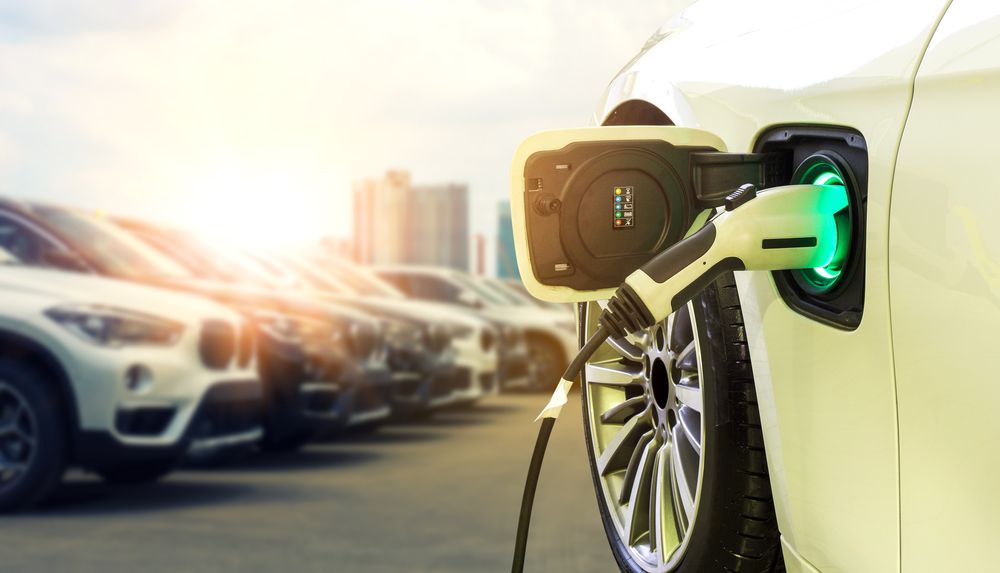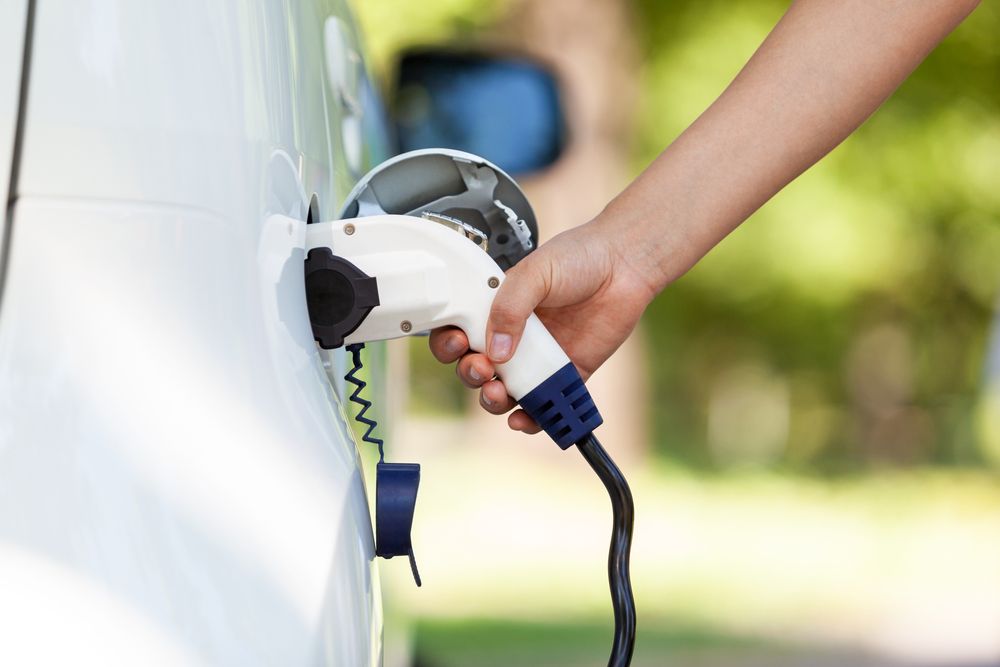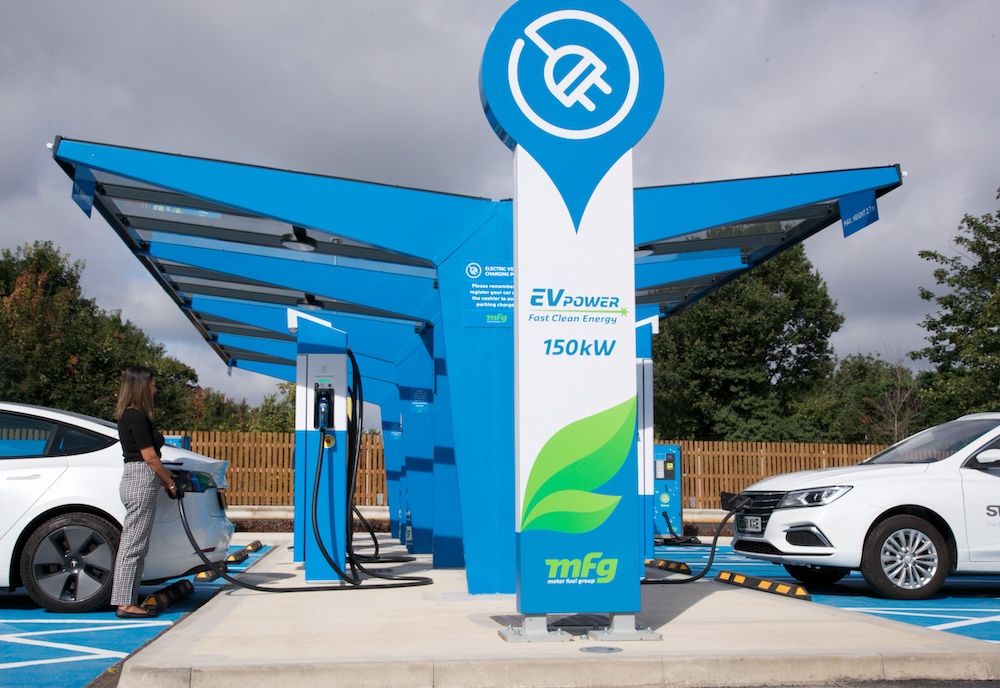The Chancellor of the Exchequer Jeremy Hunt has announced a number of measures which will impact the transport and energy sectors in the Spring Budget today.
The sectors were broadly disappointed with the overall package of new funding and measures announced, with many across the spectrum stating that the Budget was a missed opportunity to highlight the importance of net zero, electric vehicles, renewable energy and acceleration to a green economy.
Fuel duty
Fuel duty has now been frozen for more than a decade, since the-then chancellor George Osborne halted it in 2011. But it was currently due to rise by 5p at the end of March.
Hunt made the move in the belief that it will add to consumer confidence and put more money in their pockes, as well as reduce pressure on the increased costs of transportation that is normally put directly onto the supply chain bill.
Operating costs for an HGV have increased by almost 10%, based on figures from the Road Haulage Association, and this is in addition to a 20% increase in operating costs in 2022.
Quentin Willson, Founder of FairCharge who had been arguing for a VAT cut on public charging was “staggered” by the fuel duty move.
He said: “‘FairCharge is staggered that the Chancellor is prepared to spend £5 billion on a fuel duty freeze and continuation of the 5p cut, yet won’t spend 125th of that – circa £40 million – on cutting the VAT on public EV charging.
“Drivers may not see the 5p cut passed on at the pumps but charge point operators say they would pass on any reduction in VAT directly to consumers. And cutting VAT on public charging could save EV drivers up to £1300 over 10,000 miles, helping them with zero tailpipe emissions.
“Why wouldn’t you support a drive for cleaner air in our towns and cities? Might it have something to do with an election, we wonder.”
Paul Hollick, chair, Association of Fleet Professionals, said there were “some mixed feelings” about the Budget.
He said: “In a lot of ways, one of the wins this government can claim over the last 14 years is its commitment to electrification, and the impact that its policies have had on the fleet sector in terms of moving to zero carbon emissions have been marked and dramatic.
“However, the truth is that more assistance in this area is now required – especially when it comes to van electrification where there are fundamental issues to overcome as well the need for a further increased rollout of charging infrastructure – and there was no sign of that help arriving at any time soon.”
James Court, Chief Executive of EVA England, said it was a “missed opportunity” to support mass EV uptake.
He said: “Without targeted schemes to make EVs more affordable for the average consumer, all of our immense progress so far risks failing to hit the mark of our rightly ambitious net zero targets. Highly successful social leasing and targeted grant schemes are being implemented elsewhere, incentivising yet more drivers to make the switch, and this Government has failed to keep up with this momentum”.
Meanwhile, the AA welcomed the move.
Its head of roads policy, Jack Cousens, said: “The AA welcomes the Chancellor’s decision not to increase fuel duty for a further 12 months, even if the benefit has halved from £100 in 2022 to £50 now.
“Higher motoring costs, whether fuel, maintenance or insurance, are generating substantially higher VAT returns for the Treasury.”
James Taylor, Managing Director, Vauxhall, commented:
“Today’s Spring Budget has not delivered the acceleration needed to stop the UK’s transition to electric vehicles from stalling.
“If we are to meet the rightly ambitious targets laid out in the Government’s Zero Emission Vehicle mandate (80% of all cars sold to be electric by 2030) then there needs to be incentives for private car buyers to make the switch to electric as there are in the majority of European nations.
“Vauxhall will already offer its entire car and van line-up as electric by the end of this year and has a number of highly competitive offers available but we cannot drive demand alone.
“Whilst there are strong incentives for company car drivers to make the switch to electric – including for those choosing luxury vehicles – the private buyer who wants a more attainable small or family car receives nothing.
“Furthermore, if you can charge your electric vehicle at home with off-street parking then you will pay 5% VAT on your electricity. If you don’t have a driveway and rely on public chargers then you will pay 20% VAT on your electricity. We support the FairCharge campaign for a fairer taxation on charging.
“We would call on the Chancellor to urgently set up purchase incentives to stimulate the electric vehicle market and review the unfair taxation on public charging so that the UK isn’t left behind in the race to more sustainable motoring.”
Vehicle leasing
Hunt announced there would be draft legislation on making permanent the expensing of leased assets, including trucks and vans, as well as plant and machinery.
The news follows the move announced last autumn, but it is unclear whether cars, which were previously exempt from the scheme, would now be allowed or would remain outside of the remit.
It means that companies can invest in trucks or vans and greener vehicles are would be rewarded with as much as 25p off a tax bill for every £1 investment.
Roads
Hunt also announced that he was supporting local transport priorities, with the Spring Budget confirming £4.7 billion in long-term funding settlements for places outside city regions in the North and Midlands.
This cash was in addition to the £8.3 billion the government had already announced it will be investing in local roads over the next 11 years to fill millions of potholes and resurface roads, repair bridges, and deliver vital local road upgrades across England, it said.
Energy and grid connectivity
Building on the announcements at the Autumn Statement 2023, the government will implement a new stringent connections process from January 2025 so that projects “are only offered a specific connection date when they are ready to progress”.
It said that the System Operator will set out further details this autumn.
It also said it would work with the Electricity System Operator to outline further reforms by summer 2024, raising barriers to entering and remaining in the queue.
In addition, it would ensure “strong incentives for network companies” and Ofgem will review the regulatory framework for connections and make recommendations by June 2024, including considering if changes are needed to make sure that connection offers reflect the reduction in transmission infrastructure delivery times from 14 years to 7 years.
The government is also extending the Energy Profits Levy (EPL) by an additional year until March 2029, raising £1.5 billion.
Advanced manufacturing
Following its Advanced Manufacturing Plan, the government has set out at Spring Budget next steps on the £4.5 billion funding package to unlock investment in strategic manufacturing sectors – auto, aero, life sciences and clean energy.
This funding includes over £2 billion for the automotive industry and £975 million for aerospace, available for five years from 2025.
This builds on the strong track record of the government’s established auto and aero programmes, as part of which the government recently announced over £270 million of combined government and industry investment into cutting edge R&D projects.
Green Industries
The government has also announced up to a further £120 million for the Green Industries Growth Accelerator (GIGA), to support expansion of low carbon manufacturing supply chains across the UK.
Of the over £1 billion of total funding available, up to £390 million is expected to support supply chains of offshore wind & electricity networks and the same amount for supply chains of Carbon Capture Utilisation and Storage (CCUS) and hydrogen.
In addition, the government is publishing the full parameters for the Contracts for Difference Allocation Round 6 (AR6), including setting the largest ever budget for a single round of over £1 billion.
Frank Gordon, Director of Policy, REA (Association for Renewable Energy and Clean Technology) said it was a “political budget” that did not reflect the “urgency of net zero” – and although it welcomed the CfD budget it was “disappointing overall”.
He said: “In particular, the Chancellor had promised the sector a response to the US investment in green supply chains and manufacturing at the last fiscal event and to see very little once again on how we can ensure the UK does not miss out on the vital green jobs and investment up for grabs is very disappointing. ”














